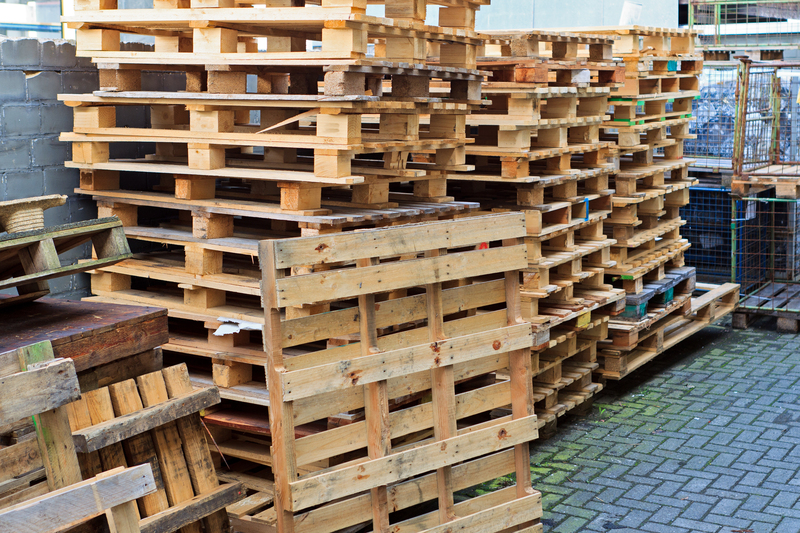In the face of climate change and the global push towards a circular economy, the food industry, particularly restaurants, has taken center stage. Restaurant sustainability is no longer a niche concern but a growing necessity for the industry. One of the most effective strategies for enhancing sustainability in restaurants is through waste recycling. This article explores various facets of how recycling can elevate sustainability in the restaurant sector.
Understanding Restaurant Waste
Before delving into the solutions, it's crucial to understand the problem. The average restaurant generates significant amounts of waste daily, which can be categorized into:
- Food Waste: Leftovers, expired products, peelings, and offcuts.
- Packaging Waste: Cardboard boxes, plastic wrappers, and glass bottles.
- Operational Waste: Used cooking oils, cleaning supplies, and worn-out equipment.

The Environmental and Economic Impact of Restaurant Waste
Waste from restaurants contributes substantially to landfill burdens. When waste components like food scraps decompose without oxygen, they release methane, a potent greenhouse gas more damaging than carbon dioxide. Implementing recycling practices not only reduces this environmental impact but also has potential economic benefits, including cost savings from efficient resource use and potential revenue from recycled materials.
Effective Recycling Practices for Restaurants
1. Implementing a Comprehensive Waste Management System
A purposeful approach to sustainability involves setting up a robust waste management system. Begin with:
- Conducting Waste Audits: Identify waste types and volumes to tailor recycling solutions.
- Employee Training: Regular training on waste segregation, recycling protocols, and sustainability goals.
2. Food Waste Composting
Food waste is the bulk of restaurant waste. Implementing a composting system not only diverts waste from landfills but also creates valuable compost that can enrich soil. Collaboration with local farmers or community gardens can provide an outlet for compost produced.
3. Recycling Cooking Oils
Used cooking oils, rather than being disposed of, can be transformed into biodiesel or other industrial products. Partner with companies that specialize in oil recycling to ensure environmental regulations are met, and valuable resources are reused productively.
4. Recycling Packaging Materials
Extensive use of packaging materials in the restaurant sector provides a significant opportunity for recycling. Encourage suppliers to use recyclable materials, and ensure that any incoming packaging is properly sorted and recycled.
Technology and Innovations in Restaurant Recycling
1. Food Waste Tracking Systems
Food waste tracking technology helps restaurants minimize excess waste by monitoring what is discarded, promoting improved inventory management, and reducing overall food costs.
2. Smart Recycling Bins
Technologically advanced recycling bins that can automatically sort different types of waste make the recycling process more efficient, ensuring higher rates of accurate recycling.
3. Online Platforms for Waste Exchange
Utilize digital platforms that connect businesses for the exchange of materials. These platforms facilitate the transfer of waste products from those who produce them to those who can use them, creating a more circular economy within communities.

Benefits of Prioritizing Sustainability and Recycling in Restaurants
1. Enhanced Brand Image
Incorporating sustainability practices such as waste recycling can positively impact a restaurant's brand image. Customers increasingly look for environmentally-conscious businesses, and sustainability can be a powerful differentiator.
2. Cost Efficiency and Revenue Generation
While initial investments in recycling might be necessary, the long-term cost savings from reduced waste disposal fees and the potential to generate revenue through the sale of recycled materials can be substantial. Additionally, some government incentives may be available to support recycling initiatives.
3. Contribution to Environmental Conservation
By significantly reducing waste sent to landfills, restaurants contribute to the broader efforts of environmental conservation. They play a critical role in reducing greenhouse gases and conserving natural resources through proactive recycling efforts.
Conclusion: A Call to Action for Restaurants
Elevating restaurant sustainability through waste recycling is not merely a trend but an imperative strategy for responsible business operation in today's world. The transition towards sustainable practices, such as recycling, should be a cornerstone in every restaurant's operational strategy. By understanding the positive impact of these practices on both the environment and the economy, the industry can lead by example in the global movement toward sustainability.
Restaurant owners and managers are urged to take a holistic view of their operations, invest in innovative solutions, harness technology, and educate staff and customers about the importance of waste recycling. This proactive approach not only safeguards the environment but also prepares the restaurant industry for a sustainable future.